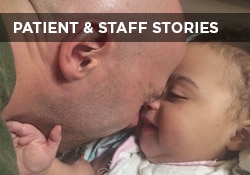This website uses cookies so that we can provide you with the best user experience possible. Cookie information is stored in your browser and performs functions such as recognising you when you return to our website and helping our team to understand which sections of the website you find most interesting and useful.

Susan E. Mazer, Ph.D. Blog
Thoughts and ideas on healthcare
Hi, and welcome to my blog! I'm Susan E. Mazer -- a knowledge expert and thought leader on how the environment of care impacts the patient experience. Topics I write about include safety, satisfaction, hospital noise, nursing, care at the bedside, and much more.
Mobile Medical and Health Apps: A Step Into Self-Care
December 11, 2015
 Do you use mobile medical and health apps to monitor your health? Are your physicians using them with patients?
Do you use mobile medical and health apps to monitor your health? Are your physicians using them with patients?
Modern Healthcare reported last month on the varying increase in use of mobile medical and health apps by patients and providers. According to a recent survey, far more utilization is predicted in the next five years than today.
However, it was also clear that the degree of promise of the increasing use of mobile medical and health apps also has much to do with the promises being made by the apps themselves.
Starting with exercise apps and wearable technology, Fitbit dominates the field. It now even provides a means to evaluate the quality of sleep by its wearer.
Users take seriously that whatever the device says is accurate. Clearly, to be taken seriously as a health monitoring device, wearable apps will have to undergo the same scrutiny as any other medical technology.
But beyond the technology, as the Modern Healthcare article points out, making medical and health apps part of a well-designed, coordinated care process is the key to their successful use. The reporter cites several examples, including one program for home health monitoring using apps that indicated a 27% reduction in patients’ cost of care.
That should get the attention of the medical community.
We recently introduced the C.A.R.E. at Home app for mobile devices to respond to patients’ requests to view The C.A.R.E. Channel at home after seeing it in the hospital. There’s no reason to believe that same therapeutic benefits patients experience in the hospital from viewing The C.A.R.E. Channel (better sleep, reduced need for pain meds) can translate to the home. And, a patient deciding to download and use the C.A.R.E. at Home App is a defined investment in self-care.
So, when clinicians develop discharge plans that are meant to keep patients healthy and maintain the trajectory to recovery, wouldn’t it be helpful to include apps not only to monitor their condition, but also help them lower their stress levels?
P.S. If you like this post, please do me a favor and share on LinkedIn, Twitter, Facebook, etc. Also to get automatic notices when a new post is published, subscribe (upper right). No spam – just great content. Thanks!










